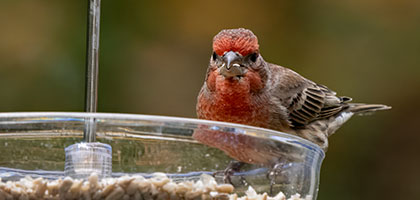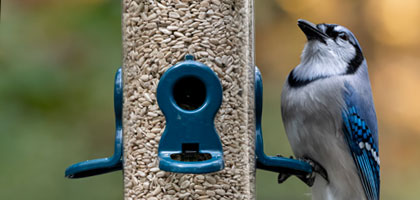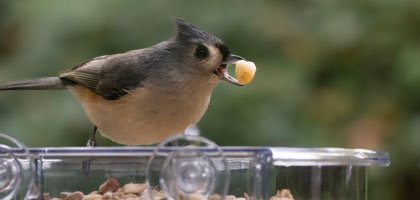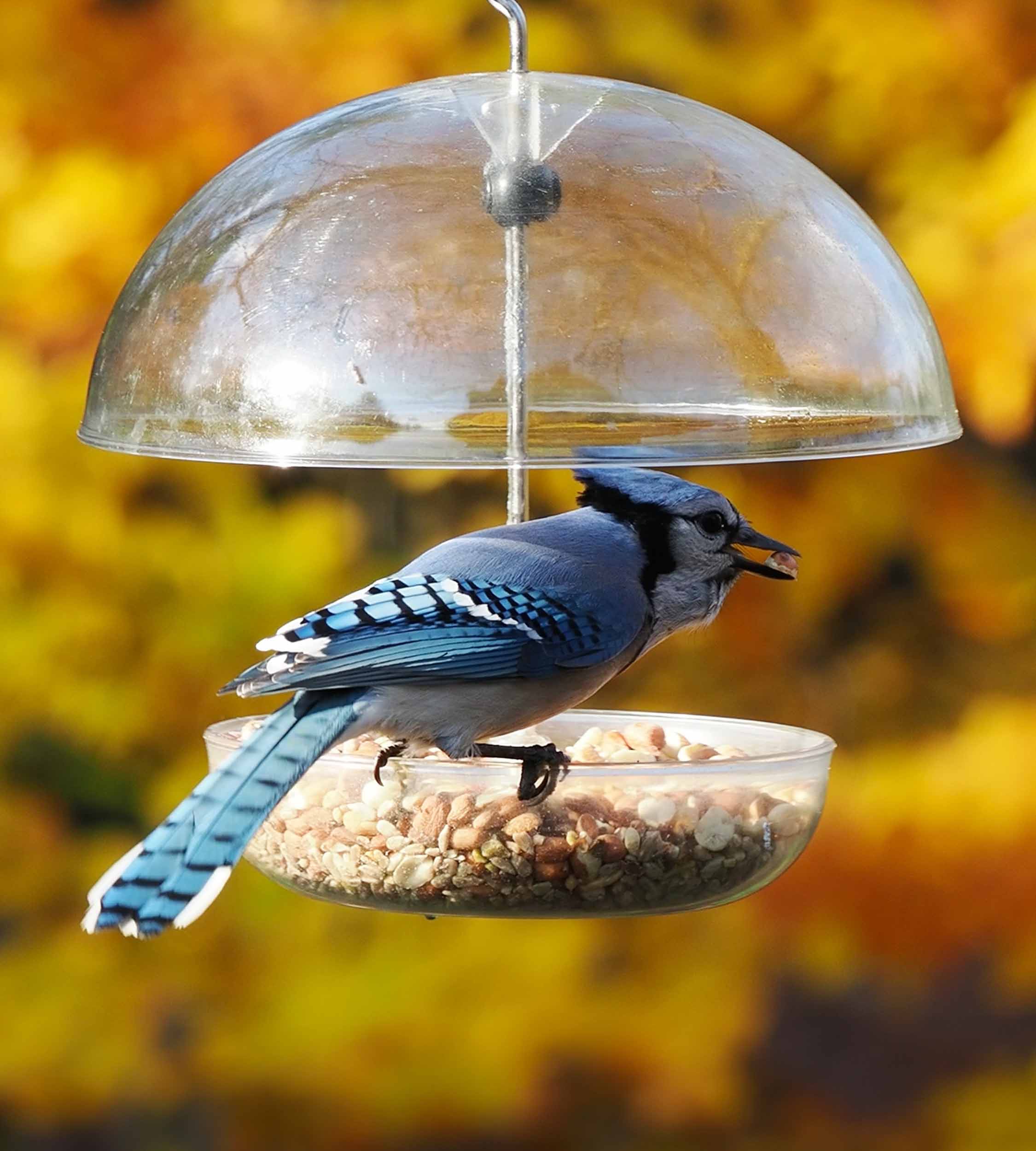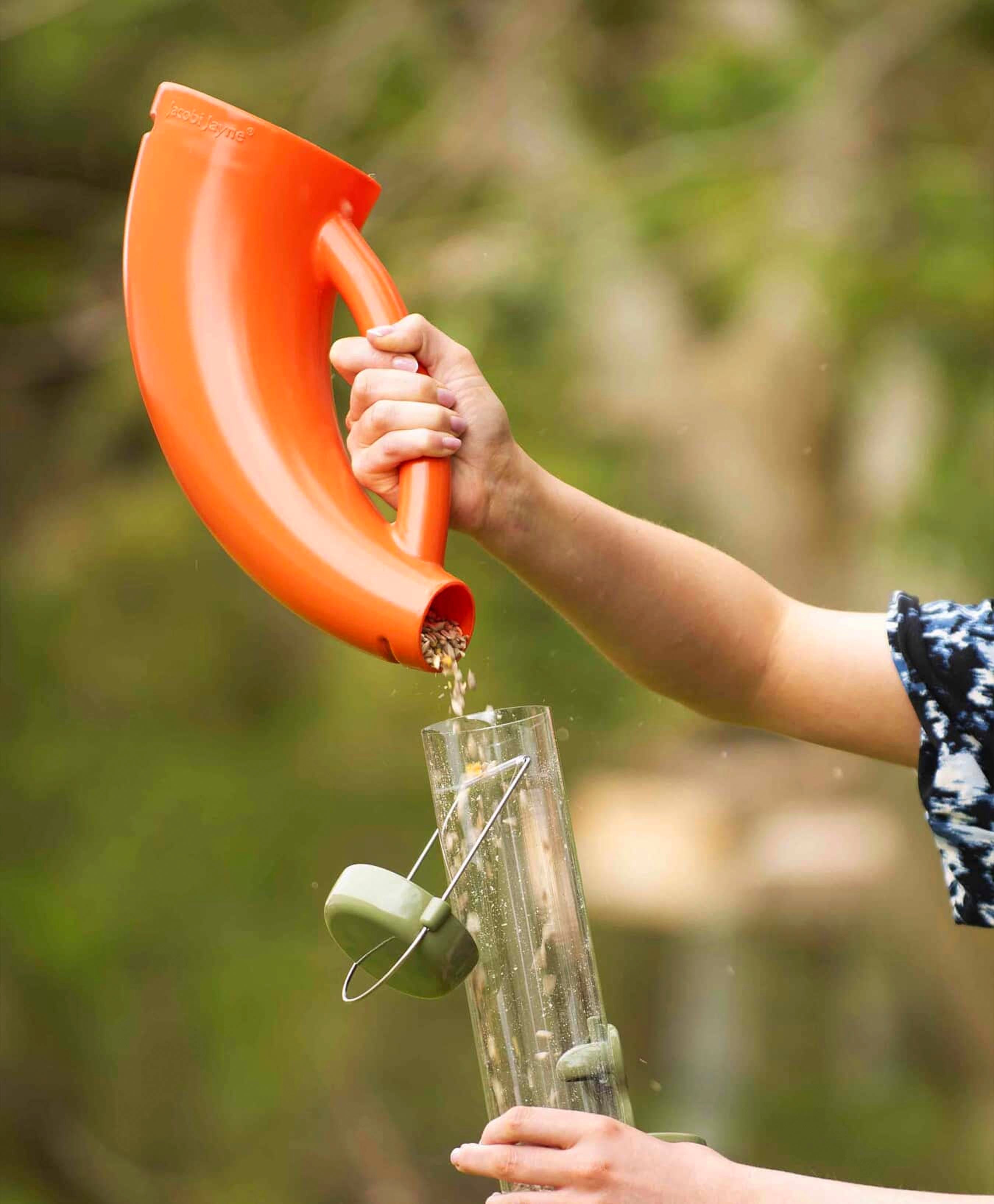Peanut butter is a staple in many households. It's a favorite treat for kids and adults alike.
But what about birds? Is peanut butter safe for our feathered friends?
This question has sparked debates among bird enthusiasts and experts. Some argue that peanut butter is a nutritious food for birds, while others warn of potential hazards.
In this article, we delve into the topic of peanut butter for birds. We'll explore its nutritional benefits and potential risks.
We'll also provide tips on how to safely offer peanut butter to birds. By the end, you'll have a clearer understanding of whether peanut butter is good or bad for birds.
Join us as we unravel the truth about feeding peanut butter to birds.
The Popularity of Peanut Butter in Bird Feeding
Peanut butter has become a well-loved treat in bird feeding circles. Bird feeders often use it to attract a variety of avian visitors. Its rich flavor and high-energy content make it appealing to many bird species.
When winter hits, peanut butter is a popular choice. Birds expend more energy to stay warm in colder months. Offering them nutrient-dense foods like peanut butter can be beneficial. Its fat and protein levels provide necessary energy for birds when natural food sources dwindle. This has helped establish peanut butter as a favorite among bird-feeding enthusiasts.
Nutritional Benefits of Peanut Butter for Birds
Peanut butter is packed with beneficial nutrients for birds. These nutrients are essential, especially during colder months when energy needs rise. The presence of proteins and healthy fats can greatly aid birds' metabolism.
Birds can gain several dietary advantages from consuming peanut butter. Here are a few nutritional benefits:
- High in protein, supporting growth and tissue repair.
- Rich in healthy fats for energy.
- Provides essential vitamins and minerals.
The fats in peanut butter are particularly useful. They provide the energy birds need to sustain their activity levels. Thus, when provided in moderation, it can be a valuable part of a bird’s diet.
Potential Risks of Feeding Peanut Butter to Birds
While peanut butter has benefits, there are risks involved. The sticky texture is a primary concern. It can adhere to birds' beaks or feathers, causing discomfort and possible mobility issues.
Another risk is the presence of additives in many commercial peanut butters. Salted varieties contain high sodium levels, which are harmful to birds. Some peanut butters also include sugar and hydrogenated fats.
Here are a few potential risks of offering peanut butter to birds:
- Sticky texture leading to difficulties in movement.
- Additives like salt and sugar causing health issues.
- Possibility of aflatoxin contamination from low-quality peanuts.
Aflatoxins found in peanuts can be toxic. It's crucial to ensure that the peanut butter provided is fresh and high-quality. By being aware of these risks, one can make informed decisions about feeding peanut butter to birds.
Safe Practices for Offering Peanut Butter to Birds
To safely feed peanut butter to birds, proper methods must be employed. Mixing peanut butter with birdseed or grains helps reduce the risk of stickiness. This mixture is easier for birds to consume.
Homemade peanut butter is a healthier choice. It lacks harmful additives found in many store-bought brands. Avoiding xylitol, a toxic sweetener, is crucial when selecting peanut butter.
Here are some safe practices to consider:
- Combine peanut butter with grains or seeds.
- Choose unsalted and unsweetened varieties.
- Make homemade peanut butter without additives.
Serve peanut butter in moderation. The goal is to complement birds’ diets without causing imbalances. Providing clean water alongside peanut butter helps birds wash down any sticky residue.
Pay attention to how birds respond to peanut butter. Watch for any signs of discomfort or aversion. Adjust feeding practices based on these observations to ensure the well-being of our feathered friends.
The Best Types of Peanut Butter for Birds
Selecting the right peanut butter for birds is essential. Avoid varieties that contain sugar, salt, or hydrogenated fats. These additives can be harmful to birds' health.
Opt for natural or organic peanut butter. These options typically have fewer ingredients and are closer to their natural form. Homemade peanut butter is often the safest and healthiest option, as it allows for control over ingredients.
It's vital to ensure that the peanut butter does not include xylitol. This sweetener is highly toxic to birds. Offering high-quality peanut butter helps protect birds while providing them with nutritional benefits.
How to Properly Prepare Peanut Butter for Bird Feeding
Proper preparation is key to ensuring peanut butter is safe for birds. The sticky texture can pose risks if not handled correctly. Here’s how to make it safer.
Mix peanut butter with seeds or grains. This combination reduces its stickiness and makes it easier for birds to eat. Use it sparingly to avoid overwhelming their diets.
Consider where you place the peanut butter. You can smear it on tree bark or use specially designed feeders. This allows birds easy access while minimizing the risk of it sticking to them.
Tips for Preparing Peanut Butter:
- Mix with birdseed or oats.
- Avoid smearing it too thickly.
- Use in moderation to prevent overfeeding.
Implementing these steps can ensure peanut butter is a beneficial and safe supplement to birds' diets.
Alternatives to Peanut Butter for Bird Feeding
If you're unsure about using peanut butter, consider alternatives. Many options provide energy and nutrients without potential risks.
Suet cakes are a popular substitute, especially in colder months. They offer high fat content, ideal for energy. Seed mixes with various grains and nuts are also excellent choices.
Other alternatives include mealworms and fruit slices. These mimic natural food sources and cater to many bird species. Always ensure alternatives suit the dietary needs of the birds in your area.
Alternative Options:
- Suet cakes
- Seed mixes
- Mealworms
- Fresh fruits
These alternatives can attract various birds while ensuring safe and nutritious feeding practices.
Expert Opinions and Research on Peanut Butter for Birds
Experts hold varied opinions on feeding peanut butter to birds. Some emphasize its nutritional value, particularly in providing energy during winter. Yet, others caution about potential risks like choking or aflatoxins in poor-quality products.
Recent studies suggest that, in moderation, peanut butter can be a safe option for some bird species. Woodpeckers and chickadees often enjoy it without issues. Despite this, it’s crucial to remain cautious and informed.
Continued research helps clarify these perspectives and guides bird enthusiasts in making informed decisions. Consulting avian specialists can provide personalized advice tailored to local bird populations and individual bird species' needs.
Conclusion: Balancing the Pros and Cons
In conclusion, peanut butter can be both beneficial and potentially harmful to birds. Its high energy content is advantageous during colder months.
However, bird enthusiasts must ensure that it is offered appropriately. Monitoring for potential risks and choosing quality peanut butter help in making it a safe treat for avian friends.
